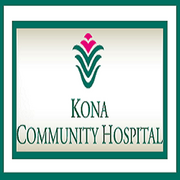
When a health crisis strikes, the emergency room is there to provide acute medical care without an appointment. Because ERs deal with serious injuries and illnesses, specific protocols are in place to ensure the highest levels of care and smooth operation of the department. Use these frequently asked questions about the ER experience to prepare for the possibility of a visit.
Answers to Common Questions About Emergency Rooms
When should I go to the ER?
You should go to the ER when experiencing any potentially life-threatening symptoms, including chest pain, severe shortness of breath, severe or sudden headache, slurred speech, acute abdominal pain, and any sudden trauma.
Expectant mothers with pregnancy complications and newborns with fevers should also seek medical attention at an emergency room.
This isn’t an exhaustive list, but if any symptoms are severe enough that you fear your life is in imminent danger, go to the ER.
Should I drive myself or call an ambulance?
 If you’re bleeding, have chest pain, or are experiencing dizziness or loss of vision, don’t drive. Call 911 for faster medical attention. With certain medical conditions like heart attacks, strokes, and major trauma, an ambulance is safer because paramedics can start performing life-saving work at the scene and en route to the hospital.
If you’re bleeding, have chest pain, or are experiencing dizziness or loss of vision, don’t drive. Call 911 for faster medical attention. With certain medical conditions like heart attacks, strokes, and major trauma, an ambulance is safer because paramedics can start performing life-saving work at the scene and en route to the hospital.
What should I bring to the ER?
Bring photo identification, a list of current medications, your insurance card, and a family member's contact information. If your situation is life-threatening, however, make medical attention your first priority and worry about these details later.
What is triage?
Triage is a system utilized by ERs to assess the severity of patients' conditions and assign each a level of priority. Acute patients are seen before others.
In most hospital emergency rooms, the first medical professional a person meets with will be a triage nurse, who will ask questions about symptoms and take vital signs before entering the patient into the system and assigning a priority category.
When you need an emergency room in the Kealakekua, HI, area, visit Kona Community Hospital. For more than a century, they’ve provided a wide range of health care services, including emergency treatment, surgery, and imaging. They are a Level III trauma center available 24/7. Visit their website for more information on their offerings.
About the Business
Have a question? Ask the experts!
Send your question

